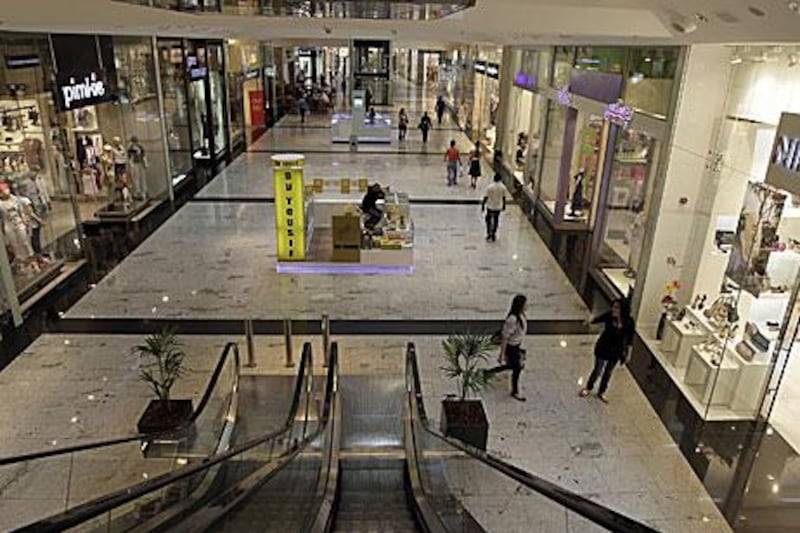Economies of Bahrain and Oman took a hit in 2011 but the GCC as a whole has a positive forecast, reports Asa Fitch, Foreign Correspondent
The GCC has largely been spared economic fallout from the Arab Spring’s political turmoil, but GDP growth in two countries – Bahrain and Oman – took a significant hit this year.
Bahrain’s GDP had been projected by the International Monetary Fund (IMF) and regional economists to rise by about 4 per cent in 2011.
But the escalation of political strife in the first half of the year sparked a quick change to those forecasts.
With tensions mounting, major sections of the island nation’s economy stagnated, including tourism and retail sales.
“A large proportion of economic activity ground to a halt during the most intense month of the crisis,” economists at the National Bank of Kuwait (NBK) said in April, revising their growth forecasts from 4.8 per cent to 1.3 per cent. “Many businesses and shopping malls were closed, tourist numbers from Saudi Arabia [and elsewhere] dropped sharply and travel through the country was severely restricted.”
Economists at other banks and think tanks made similar downwards revisions to GDP projections, and official figures later confirmed that Bahrain’s economy shrunk in the first quarter as a direct consequence of the unrest there.
Since then, new government numbers have shown marginal improvement, with 2.4 per cent year-on-year growth during the third quarter.
Oman, the only other GCC country where major protests flared this year, also saw some disruption of economic activity due to strikes, but the effect was less severe than in Bahrain.
Recent government figures showed large rises in nominal GDP – a measure that does not take inflation into account. Much of this, however, was due to increased oil production that would have added to GDP irrespective of the unrest.
“The protests that took place in Oman in February and March have undermined the growth environment – but not by much, and certainly by less than in nearby Bahrain,” the Kuwait bank’s economists said in their April report.
Gulf countries’ main response to Arab Spring upheaval has been a raft of new government spending aimed at improving the livelihoods of citizens.
Economists at Bank of America Merrill Lynch estimated earlier this year that promised spending on social projects – such as housing, hospitals and schools – totalled US$150 billion (Dh550bn) this year in the GCC.
Bahrain and Oman announced large social-infrastructure outlays.
But Saudi Arabia, where unrest was relatively muted, has been the region’s biggest spender on social investments this year. They raised public spending by about 25 per cent, anchored by a $133bn social package unveiled in March.
The country plans to continue its free-spending ways next year, according to a government budget released this week. Alongside social spending, many countries in the Gulf have raised wages for public-sector workers. Other measures include handouts of money and food in Kuwait, better unemployment benefits in Oman and the creation of new jobs for citizens.
While tensions have calmed somewhat, the reverberations of the Arab Spring are still felt across the region.
Bahrain’s long-nurtured status as a regional financial hub has suffered after violent protests that left dozens of people dead. The UAE, meanwhile, has in some ways been a beneficiary of the tumult thanks to its political stability.
Dubai in particular has been aided by a diversion of tourists from North Africa and an influx of business from Bahrain, economists said.
But they cautioned that this provided no cure for the emirate’s well-publicised housing sector ills.
“Dubai has benefited from its safe haven status in the wider MENA region as the Arab Spring has unfolded,” economists at Merrill said in an October report. “Retail and hospitality are the main beneficiaries and we see little effect on the residential segment.”
Despite political turmoil in Bahrain and Oman, Merrill forecasts 6.9 per cent GDP growth for the GCC.
The figure was revised upwards towards the end of the year thanks to Arab Spring spending packages and increased oil production.
afitch@thenational.ae





